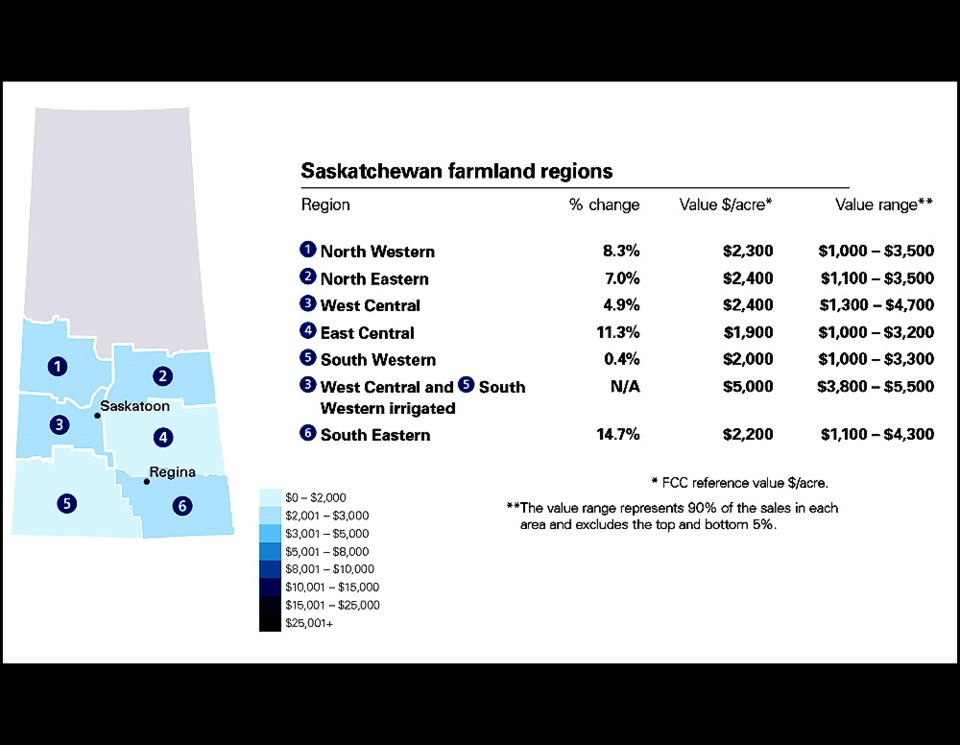REGINA — Farm Credit Canada's latest annual Farmland Values report has shown an 8.3 per cent national average increase in 2021. In 2020, values had increased by 5.4 per cent.
From Jan.1 to Dec. 31, 2021, the report illustrates changes to Canada's farmland values, including the pandemic's impact and the drought that swept across much of the prairies.
The average increase in Saskatchewan was 7.4 per cent, noted as being moderate compared to other provinces. Regionally, the Â鶹ÊÓƵwest portion of the province only saw a 0.4% change, with a value per acre change of $1000-$3,300. This represents the second most minor change in any region of the country.
The Â鶹ÊÓƵeast part of the province experienced the sharpest increase of 14.7 per cent, followed by the East Central, at 11.3 per cent.
"With the tight supply and listings selling quickly, there were fewer active properties on the market. Values were influenced by tenants buying land from landlords, neighbour-to-neighbour sales and out-of-province buyers. Producers were also buying or selling land to gain efficiencies and support family succession plans.
Values were driven by better quality land, but location was also an important factor, especially in areas less impacted by drought," reads the 2021 report.
There were significant increases in Ontario (22.2 per cent), and British Columbia (18.1 per cent), followed by Prince Edward Island (15.2 per cent), and Nova Scotia (12.3 per cent). In the province with the highest increase, Ontario, the main change occurred in the Â鶹ÊÓƵwest parts of the province, where farmland averaged between $15,000 and $32,300 per acre.
"Sharp increases are often a result of local market conditions coupled with relatively favourable economic conditions," said FCC's chief economist, J.P. Gervais.
Gervais also explained in the report that Canada's agriculture industry faces current challenges relating to labour shortages, supply chain interruptions, geopolitical tensions, and incremental interest rate increases. FCC also predicts that Canada's receipts of grains, oilseeds, and pulses will rise in 2022 due to strong global demand and tight supply.
Since 1993, the average value of farmland has increased every year, but the increase has been more pronounced from 2011 to 2015. The average farmland value in Canada has risen by single digits after that point.
The recent report includes regional data for farmland across Canada and is available at .




